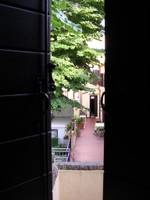
About the Catholica
Previous Posts
Toscana and the Refuges of LightThe Anti-Narnia
Ballad of the White Horse
Red and Black (at the OCP Cafe)
Dvorâk
Polyphonic Bliss
Best. Motet. Ever.
Syndication

News
Seattle CatholicCatholic Exchange
Crunchy Catholicism
Being CatholicCaelum Et Terra
Mystical Rose Herbals
Mary Gardens
Tridentine Tiramisú

St-Martin de Bréthencourt
Chartres Pilgrimage
(muchas fotos!)
Campos Photos
LMSEW Photos
Catholic Artists Today

Official Passion Site
Smallpax Guild
Nicholas Wilton Music
StudiObrien
Via Rosa Rosaries
Regina Doman
Poetry of Pavel Chichikov
Free Literature On the Web

Project Gutenberg
G.K. Chesterton
On Nothing
On Something
First and Last
Europe and the Faith
Belloc - Poetry
More Belloc Poetry
John Henry Newman
Christopher Dawson
Frederico GarcÃa Lorca
Tolkien

Romantic &
Imaginative Theology
Council of Elrond
Anke Eissmann's Art
Angels and Elves
Christianity and Middle Earth
Coulombe Essays
Ardalambion
Gwaith i Pheddain
Arthrand Board
Crazy-Go-Nuts
Homestar RunnerStrindberg & Helium
SuperPope Anime
The Onion Dome
Blogs I Like

Alle Psalite
Andrew Cusack
Angry Twins
Cacciaguida
Church of the Masses
Curt Jester
Dappled Things
Devout Life
Dignare Me Laudare Te
Erik's Rants & Recipes
Flos Carmeli
Give Tongue
Hallowed Ground
The Idyllist
Inn at the End of the World
Jade's Trick
Jelly-Pinched Theatre
Old Oligarch
Open Book
Orthonormal Basis
Sancta Sanctis
Secret Agent Man
Shrine of the Holy Whapping
Video Meliora
Vivid
The Western Confucian
Zadok the Roman
Christendom Blogs
Charlemagne's PalaceThe Christendom Commons
Meet Virginia
Destination: Order
Enchiridion
Fiddleback Fever
JulesArts
Midnight Radio
Nota Bene
¿Qué?
somewhatlost
This Red Rock
West of the Moon
Vestal Morons
Zucchero
<< # St. Blog's Parish ? >>

Archives
- April 2004
- May 2004
- June 2004
- July 2004
- August 2004
- September 2004
- October 2004
- November 2004
- December 2004
- January 2005
- February 2005
- March 2005
- April 2005
- May 2005
- June 2005
- July 2005
- August 2005
- September 2005
- October 2005
- November 2005
- December 2005
- January 2006
- February 2006
- March 2006
- April 2006
- May 2006
- June 2006
- August 2006
- September 2006
- January 2007
- February 2007
- July 2007
Kiss me, I'm Catholic.
Monday, January 22, 2007
Two Short Stories for January 22
Hills Like White Elephants
by Ernest Hemingway
I first read this in high school, and I was intrigued by the way it snuck around the ideology of my largely pro-choice classmates and haunted them. They read Hemingway's curt little description, The shadow of a cloud moved across the field of grain, and saw fertility denied and love imperiled. The story is just a conversation, really - it uses the absolute minimum to achieve its effect. Amy Welborn has a thread about it here.
Why Can't He Be You?
by Eve Tushnet
This story has the same realism as Hemingway's. And by "realism" I mean its honesty about how quotidian and colorless evil can be when you actually see it, in real life, without a lot of adjectives decorating it. Graham Greene said something (I don't have the quote) to the effect that often it's easier to die than to make a scene, as anyone who has ever prayed at an abortion clinic can attest. (The poem below came from that feeling of helplessness.)
Eve's story, though, holds out the stark assurance that these suspended emotions will be purged in the end, "someday, but not today." Today, the narrator's very equanimity reveals a convalescent conscience and a soul still weak from a long illness, the longest illness; but someday she will know the raw happiness of grief. Beati qui lugent. Someday this sensual twilight will be lifted from us, and the music that rules us in the logical kingdom of our principles will sound in the substantial air, self-evident to the ear, so that we can march and dance to it at the same time. And death shall have no dominion.
But it will not be today. Not on this day out of all the year.
|
by Ernest Hemingway
I first read this in high school, and I was intrigued by the way it snuck around the ideology of my largely pro-choice classmates and haunted them. They read Hemingway's curt little description, The shadow of a cloud moved across the field of grain, and saw fertility denied and love imperiled. The story is just a conversation, really - it uses the absolute minimum to achieve its effect. Amy Welborn has a thread about it here.
Why Can't He Be You?
by Eve Tushnet
This story has the same realism as Hemingway's. And by "realism" I mean its honesty about how quotidian and colorless evil can be when you actually see it, in real life, without a lot of adjectives decorating it. Graham Greene said something (I don't have the quote) to the effect that often it's easier to die than to make a scene, as anyone who has ever prayed at an abortion clinic can attest. (The poem below came from that feeling of helplessness.)
Eve's story, though, holds out the stark assurance that these suspended emotions will be purged in the end, "someday, but not today." Today, the narrator's very equanimity reveals a convalescent conscience and a soul still weak from a long illness, the longest illness; but someday she will know the raw happiness of grief. Beati qui lugent. Someday this sensual twilight will be lifted from us, and the music that rules us in the logical kingdom of our principles will sound in the substantial air, self-evident to the ear, so that we can march and dance to it at the same time. And death shall have no dominion.
But it will not be today. Not on this day out of all the year.

